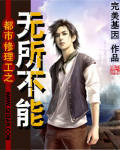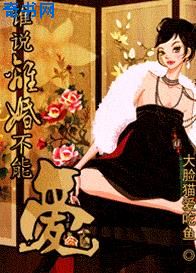生命不能承受之轻-第39部分
按键盘上方向键 ← 或 → 可快速上下翻页,按键盘上的 Enter 键可回到本书目录页,按键盘上方向键 ↑ 可回到本页顶部!
————未阅读完?加入书签已便下次继续阅读!
16
How can it be that leftist intellectuals (because the doctor with the mustache was nothing if not a leftist intellectual) are willing to march against the interests of a Communist country when Communism has always been considered the left's domain?
When the crimes of the country called the Soviet Union became too scandalous; a leftist had two choices: either to spit on his former life and stop marching or (more or less sheepishly) to reclassify the Soviet Union as an obstacle to the Grand March and march on。
Have I not said that what makes a leftist a leftist is the kitsch of the Grand March? The identity of kitsch comes not from a political strategy but from images; metaphors; and vocabulary。 It is therefore possible to break the habit and march against the interests of a Communist country。 What is impossible; however; is to substitute one word for others。 It is possible to threaten the Vietnamese army with one's fist。 It is impossible to shout Down with Communism! Down with Communism! is a slogan belonging to the enemies of the Grand March; and anyone worried about losing face must remain faithful to the purity of his own kitsch。
The only reason I bring all this up is to explain the misunderstanding between the French doctor and the American actress; who; egocentric as she was; imagined herself the victim of envy or misogyny。 In point of fact; the French doctor displayed a finely honed aesthetic sensibility: the phrases President Carter; our traditional values; the barbarity of Communism all belong to the vocabulary of American kitsch and have nothing to do with the kitsch of the Grand March。
17
The next morning; they all boarded buses and rode through Thailand to the Cambodian border。 In the evening; they pulled into a small village where they had rented several houses on stilts。 The regularly flooding river forced the villagers to live above ground level; while their pigs huddled down below。 Franz slept in a room with four other professors。 From afar came the oinking of the swine; from up close the snores of a famous mathematician。
In the morning; they climbed back into the buses。 At a point about a mile from the border; all vehicular traffic was prohibited。 The border crossing could be reached only by means of a narrow; heavily guarded road。 The buses stopped。 The French contingent poured out of them only to find that again the Americans had beaten them and formed the vanguard of the parade。 The crucial moment had come。 The interpreter was recalled and a long quarrel ensued。 At last everyone assented to the following: the parade would be headed by one American; one Frenchman; and the Cambodian interpreter; next would come the doctors; and only then the rest of the crowd。 The American actress brought up the rear。
The road was narrow and lined with minefields。 Every so often it was narrowed even more by a barrier—two cement blocks wound round with barbed wire—passable only in single file。
About fifteen feet ahead of Franz was a famous German poet and pop singer who had already written nine hundred thirty songs for peace and against war。 He was carrying a long pole topped by a white flag that set off his full black beard and set him apart from the others。
All up and down the long parade; photographers and cameramen were snapping and whirring their equipment; dashing up to the front; pausing; inching back; dropping to their knees; then straightening up and running even farther ahead。 Now and then they would call out the name of some celebrity; who would then unwittingly turn in their direction just long enough to let them trigger their shutters。
18
Something was in the air。 People were slowing down and looking back。
The American actress; who had ended up in the rear; could no longer stand the disgrace of it and; determined to take the offensive; was sprinting to the head of the parade。 It was as if a runner in a five…kilometer race; who had been saving his strength by hanging back with the pack; had suddenly sprung forward and started overtaking his opponents one by one。
The men stepped back with embarrassed smiles; not wishing to spoil the famous runner's bid for victory; but the women yelled; Get back in line! This is no star parade!
Undaunted; the actress pushed on; a suite of five photographers and two cameramen in tow。
Suddenly a Frenchwoman; a professor of linguistics; grabbed the actress by the wrist and said (in terrible…sounding English); This is a parade for doctors who have come to care for mortally ill Cambodians; not a publicity stunt for movie stars!
The actress's wrist was locked in the linguistics professor's grip; she could do nothing to pry it loose。 What the hell do you think you're doing? she said (in perfect English)。 I've been in a hundred parades like this! You won't get anywhere without stars! It's our job! Our moral obligation!
Merde said the linguistics professor (in perfect French)。
The American actress understood and burst into tears。
Hold it; please; a cameraman called out and knelt at her feet。 The actress gave a long look into his lens; the tears flowing down her cheeks。
19
When at last the linguistics professor let go of the American actress's wrist; the German pop singer with the black beard and white flag called out her name。
The American actress had never heard of him; but after being humiliated she was more receptive to sympathy than usual and ran over to him。 The singer switched the pole to his left hand and put his right arm around her shoulders。
They were immediately surrounded by new photographers and cameramen。 A well…known American photographer; having trouble squeezing both their faces and the flag into his viewfinder because the pole was so long; moved back a few steps into the ricefield。 And so it happened that he stepped on a mine。 An explosion rang out; and his body; ripped to pieces; went flying through the air; raining a shower of blood on the European intellectuals。
The singer and the actress were horrified and could not budge。 They lifted their eyes to the flag。 It was spattered with blood。 Once more they were horrified。 Then they timidly ventured a few more looks upward and began to smile slightly。 They were filled with a strange pride; a pride they had never known before: the flag they were carrying had been consecrated by blood。 Once more they joined the march。
20
The border was formed by a small river; but because a long wall; six feet high and lined with sandbags to protect Thai sharpshooters; ran alongside it; it was invisible。 There was only one breach in the wall; at the point where a bridge spanned the river。 Vietnamese forces lay in wait on the other side; but they; too; were invisible; their positions perfectly camouflaged。 It was clear; however; that the moment anyone set foot on the bridge; the invisible Vietnamese would open fire。
The parade participants went up to the wall and stood on tiptoe。 Franz peered into the gap between two sandbags; trying to see what was going on。 He saw nothing。 Then he was shoved away by a photographer; who felt that he had more right to the space。
Franz looked back。 Seven photographers were perching in the mighty crown of an isolated tree like a flock of overgrown crows; their eyes fixed on the opposite bank。
Just then the interpreter; at the head of the parade; raised a large megaphone to her lips and called out in Khmer to the other side: These people are doctors; they request permission to enter the territory of Cambodia and offer medical assistance; they have no political designs whatsoever and are guided solely by a concern for human life。
The response from the other side was a stunning silence。 A silence so absolute that everyone's spirits sank。 Only the cameras clicked on; sounding in the silence like the song of an exotic insect。
Franz had the sudden feeling that the Grand March was coming to an end。 Europe was surrounded by borders of silence; and the space where the Grand March was occurring was now no more than a small platform in the middle of the planet。 The crowds that had once pressed eagerly up to the platform had long since departed; and the Grand March went on in solitude; without spectators。 Yes; said Franz to himself; the Grand March goes on; the world's indifference notwithstanding; but it is growing nervous and hectic: yesterday against the American occupation of Vietnam; today against the Vietnamese occupation of Cambodia; yesterday for Israel; today for the Palestinians; yesterday for Cuba; tomorrow against Cuba— and always against America; at times against massacres and at times in support of other massacres; Europe marches on; and to keep up with events; to leave none of them out; its pace grows faster and faster; until finally the Grand March is a procession of rushing; galloping people and the platform is shrinking and shrinking until one day it will be reduced to a mere dimension…less dot。
21
Once more the interpreter shouted her challenge into the megaphone。 And again the response was a boundless and endlessly indifferent silence。
Franz looked in all directions。 The silence on the other side of the river had hit them all like a slap in the face。 Even the singer with the white flag and the American actress were depressed; hesitant about what to do next。
In a flash of insight Franz saw how laughable they all were; but instead of cutting him off from them or flooding him with irony; the thought made him feel the kind of infinite love we feel for the condemned。 Yes; the Grand March was coming to an end; but was that any reason for Franz to betray it? Wasn't his own life coming to an end as well? Who was he to jeer at the exhibitionism of the people accompanying the courageous doctors to the border? What could they all do but put on a show? Had they any choice?
Franz was right。 I can't help thinking about the editor in Prague who organized the petition for the amnesty of political prisoners。 He knew perfectly well that his petition would not help the prisoners。 His true goal was not to free the prisoners; it was to show that people without fear still exist。 That; too; was playacting。 But he had no other possibility。 His choice was not between playacting and action。 His choice was between playacting and no action at all。 There are situations in which people are condemned to playa






